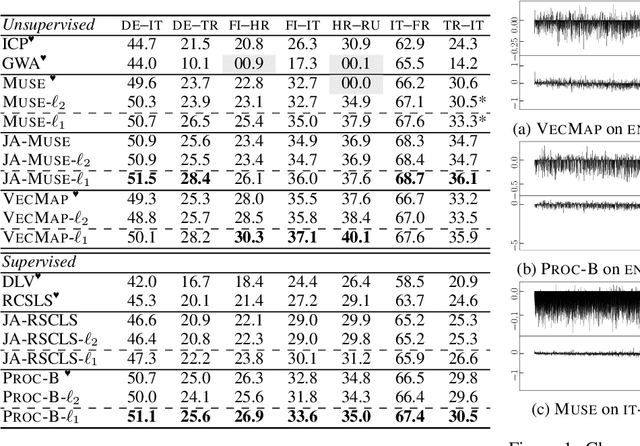Cross-Lingual Word Embedding Refinement by $\ell_{1}$ Norm Optimisation
Paper and Code
Apr 11, 2021



Cross-Lingual Word Embeddings (CLWEs) encode words from two or more languages in a shared high-dimensional space in which vectors representing words with similar meaning (regardless of language) are closely located. Existing methods for building high-quality CLWEs learn mappings that minimise the $\ell_{2}$ norm loss function. However, this optimisation objective has been demonstrated to be sensitive to outliers. Based on the more robust Manhattan norm (aka. $\ell_{1}$ norm) goodness-of-fit criterion, this paper proposes a simple post-processing step to improve CLWEs. An advantage of this approach is that it is fully agnostic to the training process of the original CLWEs and can therefore be applied widely. Extensive experiments are performed involving ten diverse languages and embeddings trained on different corpora. Evaluation results based on bilingual lexicon induction and cross-lingual transfer for natural language inference tasks show that the $\ell_{1}$ refinement substantially outperforms four state-of-the-art baselines in both supervised and unsupervised settings. It is therefore recommended that this strategy be adopted as a standard for CLWE methods.
 Add to Chrome
Add to Chrome Add to Firefox
Add to Firefox Add to Edge
Add to Edge